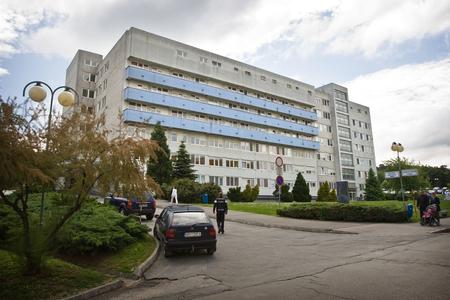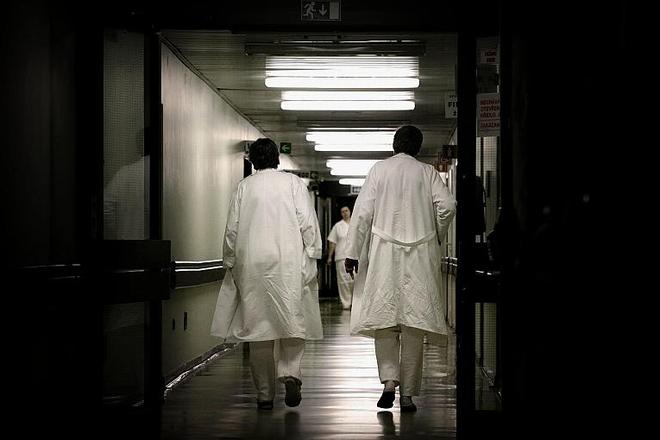Dôvera ranking
Teaching and university hospitals:
Best
Children’s Teaching Hospital with Polyclinics in Banská Bystrica
Children’s Teaching Hospital in Košice
Central Military Hospital SNP in Ružomberok
Worst
Children’s Faculty Hospital with Polyclinics in Bratislava
General hospitals:
Best
Hospital Košice-Šaca
Hospital of Dr. Vojtech Alexander in Kežmarok
St Michael’s Hospital in Bratislava
Worst
General Hospital with Polyclinics Veľký Krtíš
Specialised hospitals:
Best
National Institute of Diabetes and Endocrinology in Ľubochňa
National Institute of Cardiovascular Diseases (NÚSCH) - Children’s Cardiocentre Bratislava
Oncology Institute of St Elizabeth Bratislava
Worst
Psychiatric Hospital of Professor Matulay in Kremnica
All three health insurers in Slovakia regularly publish lists of the best and worst medical facilities on their websites, based on feedback from their clients. Yet it is essential to look at the ranking from a broader perspective as the methods used by the insurers often differ.
Asking patients about their opinion on medical facilities, which is also required by law, belongs among the important indicators of the quality of the health treatment they provide. It also offers feedback on their services, explains Dušan Zachar, analyst with the non-governmental think tank INEKO.
“The problem of the data on patient satisfaction may be the insufficient number of respondents,” Zachar told The Slovak Spectator.
Aside from health-care providers, the insurers also benefit from such information.
“A subjective patient satisfaction is one of the important indicators we take into consideration when making deals with health-care providers,” said head of Dôvera Martin Kulhan, as quoted by the SITA newswire.
The health insurers take other factors into consideration too, like the equipment of facilities and staff.
Moreover, the rankings help patients decide which medical facility to choose, Zachar added.
Private facilities lead
The results of the two rankings recently published by the private health insurers Dôvera and Union are very similar. The patients are satisfied the most with the specialised medical facilities. The best scores went to the National Institute of Diabetes and Endocrinology in Ľubochňa (Žilina Region), where mostly patients suffering from diabetes are treated.
Union ranking
Best hospitals:
National Institute of Diabetes and Endocrinology in Ľubochňa
Psychiatric Hospital Michalovce
ORL Humenné
Worst hospitals:
Psychiatric Hospital of Philipp Pinel in Pezinok
Children’s Faculty Hospital with Polyclinics in Bratislava
Hospital with Polyclinics in Myjava
Another highly ranked facility is the ORL Humenné (Prešov Region) which specialises in diseases linked to earns, nose and throat, the Mammacentrum of St Elizabeth in Banská Bystrica, the Central-Slovak Institute of Cardiovascular Diseases in Banská Bystrica, and the National Institute of Tuberculosis, Respiratory Diseases and Thoracic Surgery in Vyšné Hágy (Prešov Region), Sme wrote.
As for general hospitals, the one in Svidník (which is part of the Svet Zdravia network owned by the Penta financial group) and the St Michael’s Hospital in Bratislava (running under the Interior Ministry) were ranked highly.
No university or teaching hospital appeared among the top 10 facilities, Sme wrote.
Parents cannot accompany children
As for the worst facilities, both rankings included the Psychiatric Hospital of Philipp Pinel in Pezinok (Bratislava Region), as well as the Children’s Teaching Hospital with Polyclinics in Bratislava (DFNsP).
Dana Kamenická, the spokesperson of the latter facility, was not surprised by the ranking as they too receive rather negative evaluations from their own surveys. The patients and their parents often complain about the environment and accommodation possibilities during a child’s hospitalisation.
“Thus we are focusing on this problem and trying to solve it within our powers,” Kamenická told The Slovak Spectator.
For example, they provided 60 percent of parents of hospitalised children with beds last year. The possibilities of the hospital are, however, limited, which may be perceived as a discomfort, she added.

Data may be distorted
Every health insurer, however, uses different methodology for collecting the data, which may distort the final data, Zachar said.
As a result, it is very hard to compare the rankings. Dôvera, for example, divides the facilities into three categories: teaching hospitals, specialised medical facilities, and other facilities.
The state-run health insurer Všeobecná Zdravotná Poisťovňa (VšzP) and Union do not categorise the facilities.
Moreover, the number of respondents and methods of collecting the data differ. Dôvera, for example, surveyed 7,000 of its respondents who were evaluating the services offered by hospitals on a scale of 1-5, where 1 is the best and 5 is the worst. The hospitals received the average score of 1.64, up from 1.66 compared with the previous year.
Union carried out a telephone survey, addressing 1,520 clients who were hospitalised in 2016, using the same scale as Dôvera. The average score of hospitals was 1.66, down from 1.61 the year before.
VšZP has not published the results of the survey yet. In 2015, it sent questionnaires to 20,000 clients, but it received only 29 percent of them.
“Though the law stipulates that the health insurers should secure the relevant sample of respondents (and returned questionnaires) even on the level of wards, they cannot fulfil it,” Zachar said.
The problem is if the hospital is evaluated based on seven or 19 questionnaires, he added.
Kamenická agrees that to secure the objective evaluation of facilities, it is necessary to collect more questionnaires than the numbers provided by health insurers.
“It is also important to take into consideration the number of hospitalisations,” she opines.
Disclaimer: Dôvera is owned by the Penta financial group which has a 45-share in Petit Press, the co-owner of The Slovak Spectator.



 Illustrative stock photo (source: Sme - Tomáš Benedikovič)
Illustrative stock photo (source: Sme - Tomáš Benedikovič)